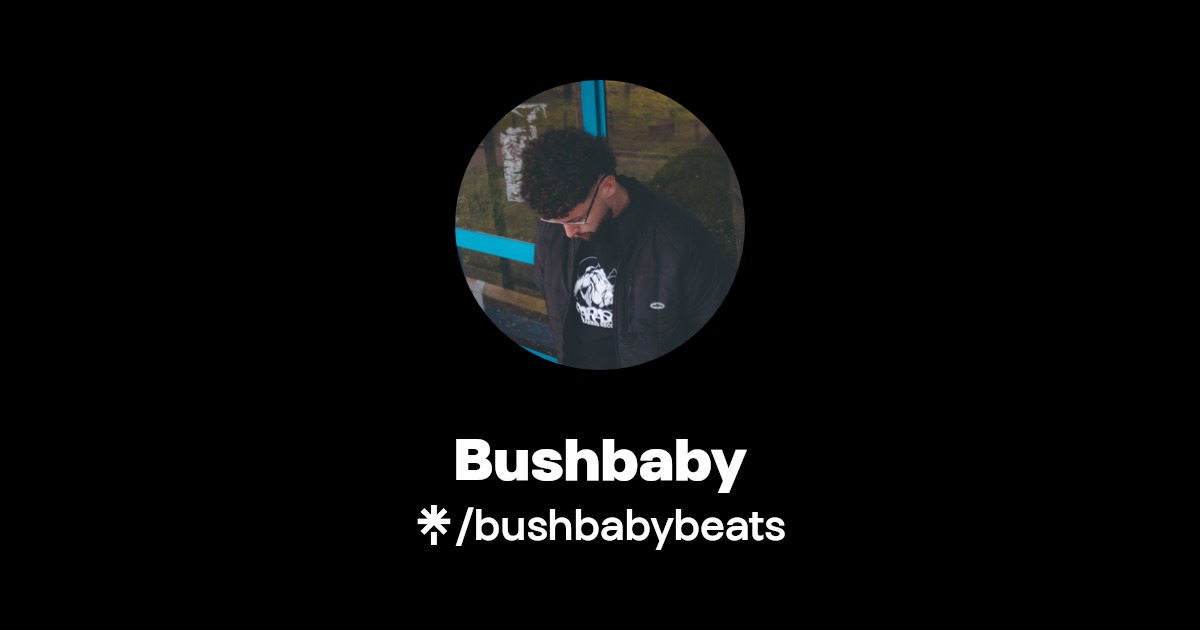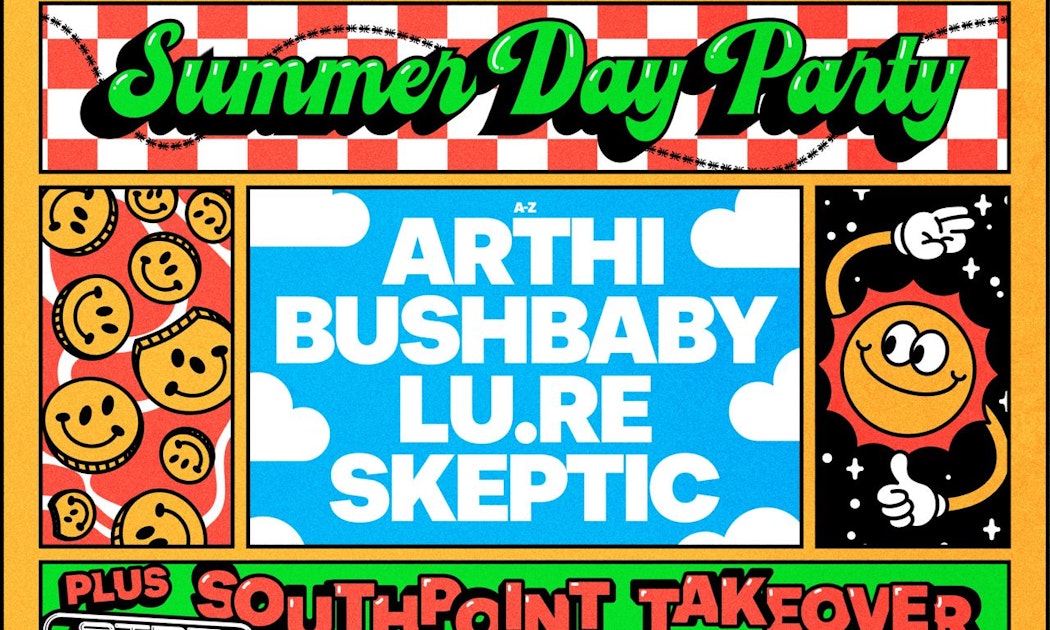As part of our Horizon Future Leaders series of interviews, we are connecting with the music industry’s next generation of leaders to gather candid advice and insights into their career journeys.
This week, we caught up with Josh Gunston - founder and label director at Brighton-based Southpoint, artist manager to names like Bushbaby, and a self-starting force whose ten year journey in the scene proves you don’t need permission to make things happen.
Josh didn’t wait for a door to open - he built the whole house. Southpoint began as a passion project while he was studying at BIMM, where he treated every class like a live case study, applying tutor insights directly to his label. That early test bed laid the foundations for what Southpoint is today: a trusted home for forward-thinking UK club music, rooted in community and driven by instinct.
Along the way, Josh sharpened his skills inside some of the industry’s bigger ecosystems - from Warner Records to AEI and 13 Artists - absorbing how larger operations function and feeding that knowledge straight back into his own projects. Whether he’s handling A&R, creative direction or the backend logistics nobody sees, it’s all part of a bigger picture he’s been building since day one.
👇 Read on for Josh’s reflections on making your own opportunities, building from Brighton and why the best way to learn is to just start.
What’s your current role in the music industry?
I’m the founder and label director of Southpoint, an independent label and artist management company based in Brighton. We’ve been running for ten years now, focused on pushing forward-thinking UK club music.
I also manage a small but growing roster of artists including Bushbaby, SHUFFA and Casey Club. My role covers everything from release strategy and marketing to touring, A&R, partnerships, creative direction and just making things happen.
What does your general day to day look like?
It’s a mix of structure and chaos, which I kinda love. Most days I work from home, but I bounce around cafés and co-working spots across Brighton to stay inspired.
I recently bought a flat in central Brighton, so I love being right in the middle of such a vibrant city. This is where Southpoint first started, so it means a lot to still be here. I did move to London for a while to take on opportunities at places like Warner and AEI, but Brighton’s always been home.
A lot of people end up settling in London or Bristol, but I’ve always felt there’s something special about staying rooted in Brighton and continuing to build from here.
My days usually start with the gym, it helps me stay grounded, especially with ADHD in the mix, then it’s a full-on juggle of emails, planning releases, speaking to artists, building campaigns and sorting all the backend label stuff that no one really sees.
What steps did you take early in your career to gain experience and build skills to get you where you are now?
I actually flopped my first degree. I was studying Audio & Music Tech at UWE Bristol, but the technical side wasn’t for me and I dropped out. When I got to BIMM Brighton later on to study Music Business, I took it seriously.
I’d just started Southpoint around the same time, so I made a point of speaking to all my tutors about real issues I was facing with the label. Every class I went to, I applied the info in real-time. It was like having a testing ground while learning.
I also made sure to fully immerse myself in the scene, going to events, digging for tunes, meeting people. I was at BIMM and working shifts at Tesco while trying to build a music career. There’s no shame in that. You just have to back yourself.
What opportunities did you explore early on that were particularly valuable?
Starting Southpoint was the biggest one. I had no idea what I was doing but I learned everything by trial and error, designing artwork, writing press releases, emailing DJs, uploading to SoundCloud, all of it.
I also took freelance and internship gigs wherever I could. Working at Warner Records, AEI Music and 13 Artists gave me insight into how bigger operations work, which definitely shaped how I run things now. But honestly, nothing taught me more than just doing it myself and figuring it out along the way.
Has the opportunity landscape changed since then?
Completely. When we started, Instagram and TikTok weren’t really a thing. Everything was SoundCloud, Facebook groups, forums and radio. You could just go to events and get a feel for what was happening in the scene. Now it feels a lot more intense.
I spend a huge chunk of my time consuming Instagram and TikTok content just to stay on top of what’s changing. It can be exciting, but also a bit debilitating if you’re someone who thrives more off real-world energy.
Also, the “electronic” world we came up through has now morphed into what everyone calls the “dance” world, which has opened the doors to more commercial opportunities. That wasn’t even on my radar when we started Southpoint, it was all about pushing music we believed in and building something for the underground.
Are there any specific internships, projects, or initiatives that you would recommend to newcomers looking to pursue a similar role?
Honestly, just get stuck in. I hear so many people say they want to work in music, but they never take that first step. If you want to work at a label, start one, even if it’s just putting out music for your mates on Bandcamp.
If you want to be a manager, manage someone. Some of the best managers I know started by saying to their DJ mate, “let me manage you”, and now they’re playing Coachella. This stuff is real.
The Music Managers Forum is a great resource too, loads of advice, templates and a community that’s worth tapping into.
What advice do you have for building and leveraging a professional network in the music industry?
Be real and play the long game. A lot of the best opportunities come from just building genuine connections over time. Support people, show up and share what you’re working on.
Don’t overthink it, if you’re consistent and passionate, people will start to notice. And don’t be afraid to DM someone you respect. Most people in the industry are just figuring it out like you are.
How has the evolving digital landscape impacted your role, and where do you focus to stay ahead?
It’s impacted everything. Back in the day, I could go to a couple of key events or follow a few radio shows and I’d have a solid grip on what was happening. Now, I’m constantly watching shortform video just to keep up.
It’s more fragmented, and you need to be across way more platforms and trends. That said, we try not to chase hype for the sake of it. At Southpoint, the focus is still on artist identity and world-building. Strong branding and storytelling always cut through.
What trends or changes do you see on the horizon for the music industry, and how can early career professionals prepare for them?
It feels like we’re moving into an era where artists need to create their own ecosystems, not just drop music, but build a whole world around it. That includes visuals, merch, language, community, all of it.
For people entering the industry, the more you can understand that side of things, not just music but culture, the more valuable you’ll be. Skills like content creation, brand strategy and community building are going to be just as important as traditional A&R or marketing.
What’s one piece of advice you wish someone had given you at the start of your career?
You don’t need permission. No one’s going to give you a golden ticket into the music industry. You just have to start. Put something out. Say yes to something new.
Make mistakes, and don't let imposter syndrome win. I wish I’d known that everyone else was figuring it out too. You’ve just got to keep pushing forward.
Anything in particular coming up that you’d like to highlight?
Southpoint is celebrating its ten year anniversary this summer with Bushbaby’s ‘EVERY TIME’ ten track mixtape dropping in September and a special Brighton day party at Concorde 2 on 5 Jul.





